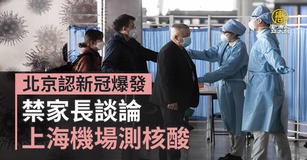【新唐人2012年1月21日訊】中共國家統計局公布的資料顯示,2011年,中國的城鎮人口佔總人口比例的一半以上,這是中國歷史上城鎮人口首次超過農村人口。學者指出,中國從政策上還沒有為農民進城做好準備,由於農民的不公正待遇和受到的歧視,會加劇社會矛盾。
統計局17號發佈資料,2011年中國大陸城鎮人口為6億9079萬人,比上一年增加2100萬人;鄉村人口為6億5656萬人,減少1456萬人;城鎮人口佔總人口的51.27%。這是城鎮人口在中國歷史上首次超過農村人口。
北京「天則經濟研究所」副所長馮興元認為,有些農民「被進城」,主要是他們的土地被看中了。但是,從很多徵地過程來看,卻是違法的。
馮興元:「如果是法人的話,是可以要回來的,至少你要從新安排補償,現在徵地不符合民法及合同法的程序。」
山東大學退休教授孫文廣也表示,中國的現實和政策都沒有為農民進城做好準備。目前進城的農民還不能算作城裡人,有戶口制度約束,還有很多歧視,中共當局不歡迎農民進城,又沒有辦法完全阻擋。
孫文廣:「當權者他們只顧少數既得利益集團的利益,對農民工最多看作是城市裡面提供的一些低等勞動力。政策方面很多是歧視這些農民進城的,不享受公費醫療、不享受城市低保。」
而農村人口城市化帶來城市交通阻塞、住房緊張等問題,加上現行中共政策加劇了社會矛盾,從而導致抗議和抗爭。
孫文廣:「進來很多農民工以後,必然帶來社會的矛盾表露出來。農民工受到歧視,他們要求自己的權利,這樣會給社會帶來一定壓力,給共產黨的統治也會帶來壓力。」
《美國之音》引述了「普林斯頓大學」中國問題研究學者程曉農的看法。程曉農指出,在其他國家,城市化是一個自然的過程,而在中國,這完全是一個政府參與的揠苗助長的過程。
他說,現在中國很多地方強迫農民「進城上樓」,比如薄熙來就在重慶推行這個政策,蓋了樓要農民搬遷到城鎮上去住,以為這樣就實現了「城鎮化」。
但是,程曉農認為,農民進城以後,能不能和城市居民享受同等待遇?如果農民進城以後永遠無法享受到城市居民權益,那他們永遠不能算是城市居民。
馮興元則表示,推行城市化,就應該強調人的權利平等,國家就要改進一些現行政策。但從目前來看,中國大陸還缺少決策層的決斷力。
馮興元:「在一個國家內,淡化戶籍制、戶籍的行政管理功能。戶籍改換僅僅是有利於資訊管理、登記管理,而不是行政管理,不是把城鄉人口分割。」
程曉農指出,很多地方政府在強調「城市化」的過程中,其實背後有一個很黑暗的算盤,就是趁機圈地,搞房地產開發賺大錢。
新唐人記者陳漢、宋風、王明宇採訪報導。
-----------------
China with More Urban Than Rural Population Now
According to China』s statistics, in 2011,
over 50% of the population lived in urban areas.
For the first time in China』s history, urban population
exceeds the number of people living in the rural regions.
Scholars point out that China』s policy is not ready
for farmers to move to the cities.
As migrant workers are treated unfairly,
the social conflict can only intensify.
Statistics from January 17 indicate, in 2011 China』s urban
population was 690 million, or 21 million more than in 2010.
Population in rural areas was 657 million, or 14.6 million less;
thus 51.27% of China』s population lives in urban areas now.
This is the first time in China』s history,
when the urban population exceeds the rural population.
Feng Xingyuan, deputy director of Beijing Uni-rule Institute
of Economics, believes farmers are forced to shift to cities, when their land is expropriated.
However, many practices on how to handle the farmland
are illegal.
Feng Xingyuan: “If it is illegal, farmers can take it back.
At least, the authorities should arrange the compensation.
Now the land expropriation does not meet civil procedures,
nor the contract law.”
Sun Wenguang, a retired professor from Shandong University,
said China』s policies are not ready for farmers moving to cities.
Now migrant workers can not be counted as city citizens,
according to China』s policies.
There is household registration system restriction,
and many unfair treatments exist.
Chinese Communist Party』s (CCP) regime doesn』t welcome
farmers moving to cities, but has no way to stop them either.
Prof. Sun: “The ruling groups only care about minority』s
interests, they only treat farmers as cheap labours in cities.
Many policies contain the discrimination of farmers
living in cities.
Farmers do not have rights to use national health care,
nor governmental funds for low income families.”
The urbanization will worsen traffic congestion,
housing shortage and other issues.
In addition, the CCP policies exacerbate social conflicts,
provoking protests and resistance.
Prof. Sun: “More migrant workers coming to the cities,
will expose more social conflicts.
Migrant workers are discriminated, they demand their rights,
putting some pressure on the society and the CCP.”
Voice of America quoted China』s socio-economic expert,
Cheng Xiaonong』s comments on the issue.
Cheng says that in other countries urbanization is a natural
process, but in China is entirely enforced by the government..
According to Cheng, farmers were forced to live in towns,
which happened in many areas.
For example, Bo Xilai promotes this policy in Chongqing,
in order to change rural areas into city level areas.
They built new town buildings, forcing farmers to move in,
thinking “urbanization” can be achieved this way.
Cheng Xiaonong believes that when farmers live in cities,
they can be treated as city residents and share national welfare.
However, if farmers live in cities but never have the same
rights as city citizens, can they actually be called city citizens?
Feng Xingyuan said, implementation of urbanization should
allow people to be equal; current policies need to be reviewed.
At the moment however,
China lacks strength on a decision-making level.
Feng Xingyuan: “In country areas they should ease household
registration system (Hukou) and its management function.
Hukou system should be used for information and population
management purposes only, not for administration.
And shouldn』t be used to divide the population
into urban and rural class citizens.”
Cheng Xiaonong points out that many local governments
are focused on “urbanization.”
However, behind it lies the evil intention to grab the farmland
illegally, not missing the chance to make money from real estate.
NTD reporters Chen Han, Song Feng and Wang Mingyu
看下一集

【禁聞】明星大腕紛退出 央視春晚被惡評

【禁聞】「退出微博」 抵制網路實名制

【禁聞】溫家寶:動盪主因在內 促政改陷兩難

【禁聞】「北大笑長」漫畫 人頭狗身引爭議

【禁聞】天滅中共網在收:眾叛親離分崩兮

【禁聞】央視春晚「坑爹」 民眾自製除夕節目

【禁聞】中國訪民過年如過關

【禁聞】耿和:高智晟活著見人 死了見屍

【禁聞】2011年法輪功學員被迫害致死概況

【禁言博客】老朋友你死得真幸福

【禁聞】蔡衍明歪曲六四 王丹拒買《中時》

【禁聞論壇】中國是下一個經濟危機的震源?

【禁聞】年初一:藏區傳槍聲 深圳忙強拆

【禁言博客】我爸是局長與我侄在白宮誰更牛?

【禁言博客】老朋友你死得真幸福

【禁聞】「奧林匹克奴隸」:大陸血汗工廠






 財經趨勢4.0
財經趨勢4.0 新聞大破解
新聞大破解 新唐人財經新聞
新唐人財經新聞 選戰大透視
選戰大透視 遇見新聞
遇見新聞 老外看中國、老外看台灣
老外看中國、老外看台灣 美麗心台灣
美麗心台灣 田美女奉茶實客
田美女奉茶實客 廚娘香Q秀
廚娘香Q秀 大千世界
大千世界 1000步的繽紛台灣
1000步的繽紛台灣 好樣!Formosa
好樣!Formosa 健康1+1
健康1+1 談古論今話中醫
談古論今話中醫 我的音樂想想
我的音樂想想 胡乃文開講
胡乃文開講 她健康She Health
她健康She Health 天庭小子-小乾坤
天庭小子-小乾坤 總統教育獎
總統教育獎 全國孝行獎
全國孝行獎 健談交流
健談交流 悠遊字在
悠遊字在 傳奇時代
傳奇時代 音樂大賽特別節目
音樂大賽特別節目









